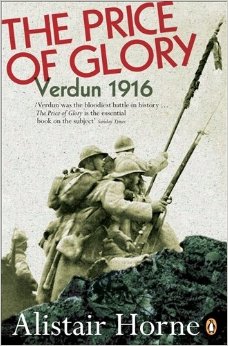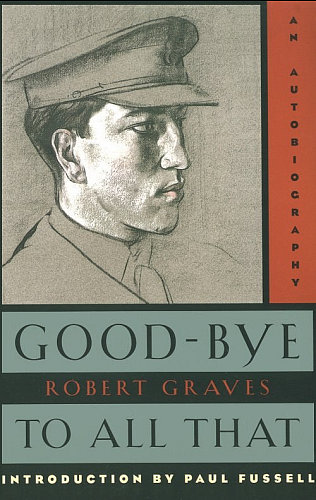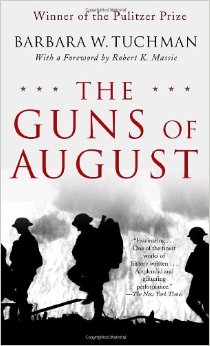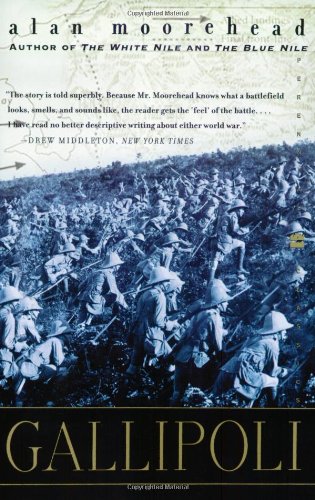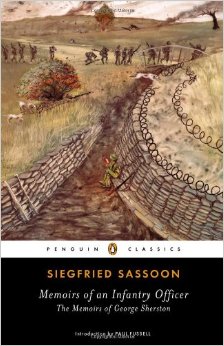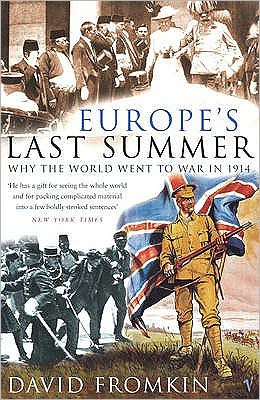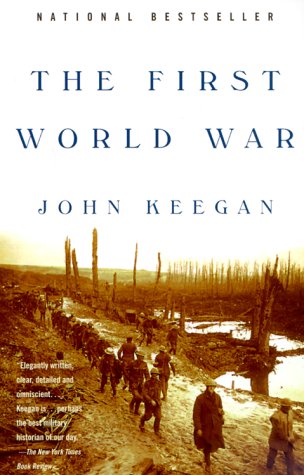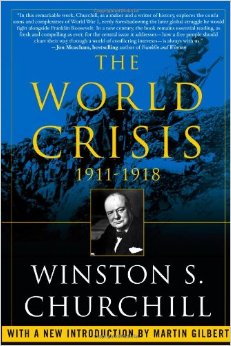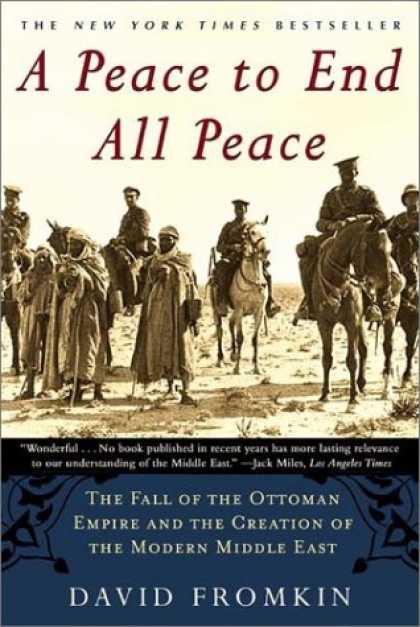It was the War to End All War but ultimately, although it caused over 37 million deaths and casualties, it did not end war only set the stage for the horrors of WWII and sowed the seeds of conflicts that resonate to this day. There are many brilliant books written about the war from every conceivable angle, these are just a few essentials.
In Flanders Field: 9 Books Try to Explain the Insanity of WWI
No other campaign, save the Somme epitomizes the senseless carnage of the War as does the battle of Verdun, which lasted ten months and took the lives of 700,000 men along a front of fifteen miles. Its aim was less to defeat the enemy than bleed him to death and a battleground whose once fertile terrain is even now a haunted wilderness. This classic work, continuously in print since it was published is a profoundly moving, sympathetic study of the battle and the men who fought there. It shows that understanding Verdun is a key to understanding the First World War.
No other campaign, save the Somme epitomizes the senseless carnage of the War as does the battle of Verdun, which lasted ten months and took the lives of 700,000 men along a front of fifteen miles. Its aim was less to defeat the enemy than bleed him to death and a battleground whose once fertile terrain is even now a haunted wilderness. This classic work, continuously in print since it was published is a profoundly moving, sympathetic study of the battle and the men who fought there. It shows that understanding Verdun is a key to understanding the First World War.
Written after the war on the eve of his quitting England this memoir traces poet Graves' solidly middle-class Victorian childhood through his entry into the war at age twenty-one as a patriotic captain in the Royal Welsh Fusiliers. This dramatic, poignant, often wry autobiography goes depicts the horrors and disillusionment of the Great War, from life in the trenches and the loss of dear friends, to the stupidity of government bureaucracy and the absurdity of English class stratification. Hailed by many as the greatest memoir of the war.
Written after the war on the eve of his quitting England this memoir traces poet Graves' solidly middle-class Victorian childhood through his entry into the war at age twenty-one as a patriotic captain in the Royal Welsh Fusiliers. This dramatic, poignant, often wry autobiography goes depicts the horrors and disillusionment of the Great War, from life in the trenches and the loss of dear friends, to the stupidity of government bureaucracy and the absurdity of English class stratification. Hailed by many as the greatest memoir of the war.
Pulitzer Prize–winning historian Tuchman re-creates the first month of World War I: thirty days in the summer of 1914 that determined the course of the conflict, the century, and ultimately our present world. Dizzyingly comprehensive and spectacularly portrayed with her famous talent for evoking the characters of the war’s key players, Tuchman’s magnum opus is a classic for the ages.
Pulitzer Prize–winning historian Tuchman re-creates the first month of World War I: thirty days in the summer of 1914 that determined the course of the conflict, the century, and ultimately our present world. Dizzyingly comprehensive and spectacularly portrayed with her famous talent for evoking the characters of the war’s key players, Tuchman’s magnum opus is a classic for the ages.
Churchill's plan to smash through the Dardanelles and reopen the straits to shipping seemed, on paper, to have every chance of success. But what happened in the next nine months was a nightmare of lost opportunities, confused planning, and military incompetence. In this vivid chronicle Moorehead brings fully to life the tragic waste in human life, the physical horror, and the sheer heartbreaking folly of fighting for impossible objectives with inadequate means on unknown, un-mapped terrain.
Churchill's plan to smash through the Dardanelles and reopen the straits to shipping seemed, on paper, to have every chance of success. But what happened in the next nine months was a nightmare of lost opportunities, confused planning, and military incompetence. In this vivid chronicle Moorehead brings fully to life the tragic waste in human life, the physical horror, and the sheer heartbreaking folly of fighting for impossible objectives with inadequate means on unknown, un-mapped terrain.
The second volume of Sassoon's semi-autobiographical trilogy begins in 1916, with the young Sherston deep in the trenches of WWI. For his decorated bravery, and also his harmful recklessness, he is soon sent for officer training, then dispatched to the Somme. After being wounded he returns home to convalesce, where his questioning of the war and the British Military establishment leads him to write a public anti-war letter verbatim to the one Sassoon himself wrote. One of the best books written about the experience of WWI.
The second volume of Sassoon's semi-autobiographical trilogy begins in 1916, with the young Sherston deep in the trenches of WWI. For his decorated bravery, and also his harmful recklessness, he is soon sent for officer training, then dispatched to the Somme. After being wounded he returns home to convalesce, where his questioning of the war and the British Military establishment leads him to write a public anti-war letter verbatim to the one Sassoon himself wrote. One of the best books written about the experience of WWI.
When war broke out in Europe in 1914, it surprised a European population enjoying the most beautiful summer in memory. For nearly a century since, the cause of the War has been debated. Here Fromkin posits that hostilities were begun deliberately that German generals who, seeing war as inevitable, manipulated events to precipitate a conflict waged on their own terms. Examining the actions of individuals amid larger historical forces, this is a gripping historical narrative and a dramatic reassessment of key moments in the War. A book to read alongside Barbara Tuchman.
When war broke out in Europe in 1914, it surprised a European population enjoying the most beautiful summer in memory. For nearly a century since, the cause of the War has been debated. Here Fromkin posits that hostilities were begun deliberately that German generals who, seeing war as inevitable, manipulated events to precipitate a conflict waged on their own terms. Examining the actions of individuals amid larger historical forces, this is a gripping historical narrative and a dramatic reassessment of key moments in the War. A book to read alongside Barbara Tuchman.
If you only read one book about the War, this is the one you should read.
If you only read one book about the War, this is the one you should read.
Who better than First Lord of the Admiralty and Minister for War and Air to describe the battles and politics of the War and how what happened in this first world crisis led to the second.
Who better than First Lord of the Admiralty and Minister for War and Air to describe the battles and politics of the War and how what happened in this first world crisis led to the second.
What happens when wars end and the winners divide the world? This magisterial book reveals how and why the Allies drew lines on an empty map that remade the geography and politics of the Middle East and in that re-drawing sowed the seeds of modern conflict. You want to understand what is happening today, you need to read this book about what happened almost 100 years ago.
What happens when wars end and the winners divide the world? This magisterial book reveals how and why the Allies drew lines on an empty map that remade the geography and politics of the Middle East and in that re-drawing sowed the seeds of modern conflict. You want to understand what is happening today, you need to read this book about what happened almost 100 years ago.

